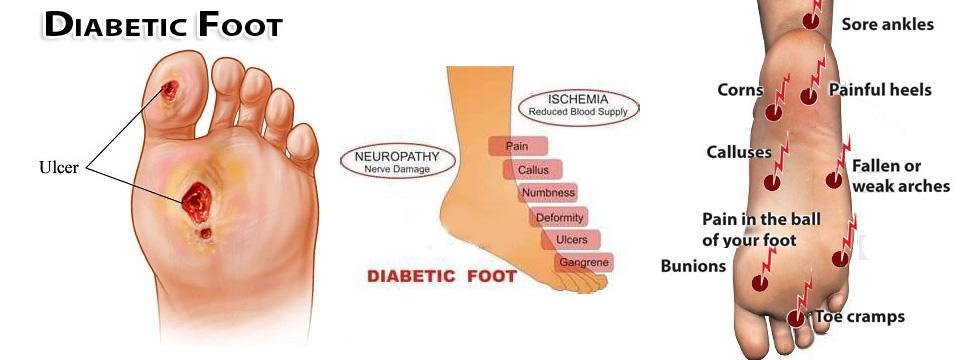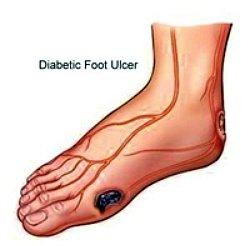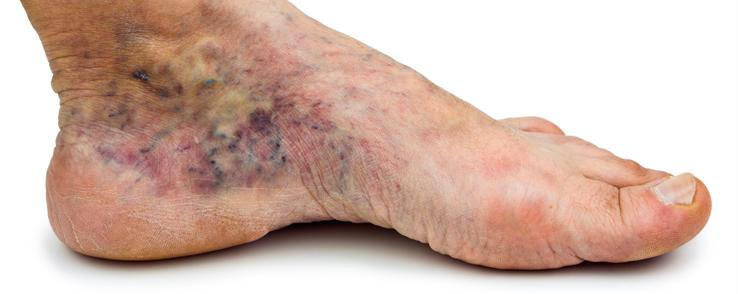- posted: Jan. 23, 2017
Diabetes can be dangerous to your feet – even a small cut can produce serious consequences. Diabetes may cause nerve damage that takes away the feeling in your feet. Diabetes may also reduce blood flow to the feet, making it harder to heal an injury or resist infection. Because of these problems, you may not notice a foreign object in your shoe. As a result you could develop a blister or a sore. This could lead to an infection or a non-healing wound that could put you at risk for an amputation. 
To avoid serious foot problems that could result in losing a toe, foot, or leg, follow these guidelines.
- Inspect your feet daily. Check for cuts, blisters, redness, swelling, or nail problems. Use a magnifying hand mirror to look at the bottom of your feet. Call your doctor if you notice anything.
- Wash your feet in lukewarm (not hot!) water. Keep your feet clean by washing them daily. Use only lukewarm water - the temperature you would use on a newborn baby.
- Be gentle when bathing your feet. Wash them using a soft washcloth or sponge. Dry by blotting or patting, and carefully dry between the toes.
- Moisturize your feet – but not between your toes. Use a moisturizer daily to keep dry skin from itching or cracking. But DON’T moisturize between the toes – that could encourage a fungal infection.
- Cut nails carefully once a doctor approves you have good circulation and are okay to do this. Cut them straight across and file the edges. Don’t cut nails too short, as this could lead to ingrown toe nails. If you have concerns about your nails, consult Dr. Cheney at AllCare Foot & Ankle.
- Never treat corns or calluses yourself. No “bathroom surgery” or medicated pads. Visit your doctor for ap
 propriate treatment.
propriate treatment. - Wear clean, dry socks. Change them daily.
- Avoid the wrong type of socks. Avoid tight elastic bands (they reduce circulation). Don’t wear thick or bulky socks (they can fit poorly and irritate the skin).
- Wear socks to bed. If your feet get cold at night, wear socks. NEVER use a heating pad or hot water bottle.
- Shake out your shoes and feel the inside before wearing. Remember, your feet may not be able to feel a pebble or other foreign objects, so always inspect your shoes before putting them on.
- Keep your feet warm and dry. Don’t let your feet get wet in snow or rain. Wear warm socks and shoes in winter.
- Never walk barefoot. Not even at home! Always wear shoes or slippers. You could step on some
 thing and get a scratch or cut.
thing and get a scratch or cut. - Take care of your diabetes. Keep your blood sugar levels under control.
- Don’t smoke. Smoking restricts blood flow in your feet.
- Dr. Cheney recommends periodic foot exams. If you have low risk factors, once every year. Moderate factors, once every 6 months. High risk factors, once every 3months. Seeing your foot and ankle surgeon on a regular basis can help prevent the foot complications of diabetes.
We are here to assist Diabetic Patients with an Emergency or a Routine Matter. 732-695-3668
Locations
Hours of Operation
9:00 am - 5:00 pm
9:00 am - 5:00 pm
9:00 am - 5:00 pm
9:00 am - 5:00 pm
9:00 am - 5:00 pm
By Appointment
Closed
